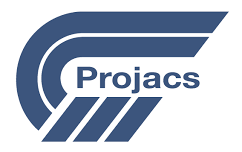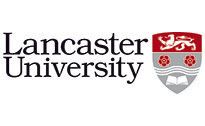
Futures Thinking for Policy Making
Course ID: 2507140101195ESH
Course Dates : 14/07/25 Course Duration : 5 Studying Day/s Course Location: London, UK
Language: Bilingual
Course Category: Professional and CPD Training Programs
Course Subcategories: Operations and Process Excellence
Course Certified By: ESHub CPD & LondonUni - Executive Management Training
* Professional Training and CPD Programs
Leading to:
Executive Diploma Certificate
Leading to:
Executive Mini Masters Certificate
Leading to
Executive Masters Certificate
Certification Will Be Issued From :
From London, United Kingdom
Course Fees: £5,120.30
Vat Not Included in the price. VAT may vary depending on the country where the course or workshop is held.
Click to Pay
Date has passed please contact us Sales@e-s-hub.com
Course Information
Introduction
The ability to anticipate and navigate future uncertainties is no longer a luxury but a necessity in the realm of policy making. As societies grapple with rapid technological advancements, climate change, geopolitical shifts, and evolving societal expectations, policymakers are increasingly required to adopt forward-thinking approaches. Futures thinking—a structured methodology for exploring alternative futures and their implications—offers a powerful framework for addressing these challenges. This course equips participants with the tools and insights needed to integrate futures thinking into policy development, enabling them to design strategies that are resilient, inclusive, and adaptive.
One of the key gaps in traditional policy-making processes lies in their tendency to rely heavily on historical data and linear projections. While valuable, this approach often fails to account for disruptive changes or emerging trends that could fundamentally alter the landscape. For instance, the global response to the COVID-19 pandemic highlighted the limitations of conventional planning methods, as many governments struggled to adapt to an unprecedented crisis. By incorporating futures thinking, policymakers can move beyond reactive measures and develop proactive strategies that anticipate potential disruptions. The course addresses this gap by introducing participants to cutting-edge methodologies such as scenario planning, horizon scanning, and systems mapping.
Mastering futures thinking offers significant benefits for both individuals and organizations. On a personal level, participants will enhance their strategic foresight capabilities, positioning themselves as thought leaders within their fields. Organizations, in turn, stand to gain from improved decision-making processes, reduced risks, and the ability to seize opportunities in dynamic environments. For example, Singapore’s use of futures thinking in urban planning has enabled the city-state to address long-term challenges like population growth and resource scarcity effectively. Such success stories underscore the transformative potential of integrating futures thinking into policy frameworks.
The theoretical foundation of this course draws upon established frameworks such as the Three Horizons Model, which helps organizations balance short-term priorities with long-term aspirations, and the STEEP (Social, Technological, Economic, Environmental, Political) analysis, a tool for identifying drivers of change. Additionally, the course explores emerging trends in artificial intelligence, sustainability, and governance, ensuring that participants remain at the forefront of innovation. These concepts are not only academically robust but also highly applicable, as demonstrated by the European Union’s Horizon Europe initiative, which leverages futures thinking to guide research and innovation policies.
Real-world applications of futures thinking abound across industries. In healthcare, for instance, futures thinking has been instrumental in preparing for pandemics and addressing aging populations. Similarly, in education, it has informed curriculum reforms aimed at equipping students with skills relevant to future job markets. Participants will engage with case studies from diverse sectors, gaining firsthand insights into how futures thinking can drive impactful change. One notable example is the work of the Institute for the Future, which collaborated with NASA to envision space exploration scenarios over the next century.
Ultimately, this course represents a timely intervention in an era defined by complexity and uncertainty. It empowers policymakers to transcend siloed thinking and embrace a holistic, interdisciplinary approach to shaping the future. By fostering a culture of anticipation and adaptability, participants will be better equipped to craft policies that not only respond to current needs but also lay the groundwork for sustainable progress. Whether addressing global challenges or local priorities, futures thinking serves as a catalyst for innovation and resilience in policy making.
Objectives
By attending this course, participants will be able to:
Analyze complex systems and identify key drivers of change using frameworks such as STEEP and the Three Horizons Model.
Evaluate the implications of emerging trends and disruptions on policy outcomes through scenario planning exercises.
Design adaptive policy frameworks that incorporate flexibility and resilience to accommodate future uncertainties.
Implement horizon scanning techniques to detect early signals of change and inform strategic decision-making.
Apply ethical considerations and stakeholder engagement principles to ensure inclusivity in futures-oriented policy design.
Synthesize insights from interdisciplinary perspectives to create actionable recommendations for organizational or governmental contexts.
Assess the effectiveness of existing policies against future-oriented criteria and propose evidence-based improvements.
Who Should Attend?
This course is ideal for:
Policy analysts, government officials, and public administrators seeking to enhance their strategic foresight capabilities. Consultants and advisors working in areas such as sustainability, technology, and governance will also find immense value in mastering futures thinking methodologies. Additionally, educators and researchers focused on public policy, urban planning, or social sciences can benefit from the course’s interdisciplinary approach. While prior experience in policy making is advantageous, the course is designed to accommodate intermediate learners who possess foundational knowledge of policy processes and are eager to expand their skill set.
Training Method
• Pre-assessment
• Live group instruction
• Use of real-world examples, case studies and exercises
• Interactive participation and discussion
• Power point presentation, LCD and flip chart
• Group activities and tests
• Each participant receives a 7” Tablet containing a copy of the presentation, slides and handouts
• Post-assessment
Program Support
This program is supported by:
* Interactive discussions
* Role-play
* Case studies and highlight the techniques available to the participants.
Daily Agenda
Daily Schedule (Monday to Friday)
- 09:00 AM – 10:30 AM Technical Session 1
- 10:30 AM – 12:00 PM Technical Session 2
- 12:00 PM – 01:00 PM Technical Session 3
- 01:00 PM – 02:00 PM Lunch Break (If Applicable)
- Participants are expected to engage in guided self-study, reading, or personal reflection on the day’s content. This contributes toward the CPD accreditation and deepens conceptual understanding.
- 02:00 PM – 04:00 PM Self-Study & Reflection
Please Note:
- All training sessions are conducted from Monday to Friday, following the standard working week observed in the United Kingdom and European Union. Saturday and Sunday are official weekends and are not counted as part of the course duration.
- Coffee and refreshments are available on a floating basis throughout the morning. Participants may help themselves at their convenience to ensure an uninterrupted learning experience Provided if applicable and subject to course delivery arrangements.
- Lunch Provided if applicable and subject to course delivery arrangements.
Course Outlines
Foundations of Futures Thinking
Introduction to futures thinking and its relevance in policy making
Overview of key frameworks: STEEP analysis and the Three Horizons Model
Understanding systems thinking and its role in identifying interconnections
Case study: Lessons from Singapore’s urban planning initiatives
Day 2:
Tools and Techniques for Anticipating Change
Introduction to horizon scanning and its practical applications
Conducting scenario planning exercises to explore alternative futures
Identifying early signals of disruption and their implications
Group activity: Developing scenarios for a chosen policy area
Day 3:
Ethical and Inclusive Policy Design
Incorporating ethical considerations into futures-oriented policies
Engaging stakeholders to ensure inclusivity and equity
Addressing biases and assumptions in future projections
Case study: AI ethics in policymaking
Day 4:
Adapting Policies for Resilience
Designing adaptive policy frameworks to manage uncertainty
Balancing short-term priorities with long-term aspirations
Evaluating risks and opportunities in dynamic environments
Workshop: Refining policy proposals based on feedback
Day 5:
Implementation and Impact Assessment
Strategies for implementing futures-informed policies
Measuring the effectiveness of policies against future-oriented criteria
Communicating complex futures concepts to diverse audiences
Final project presentations and peer review



















































